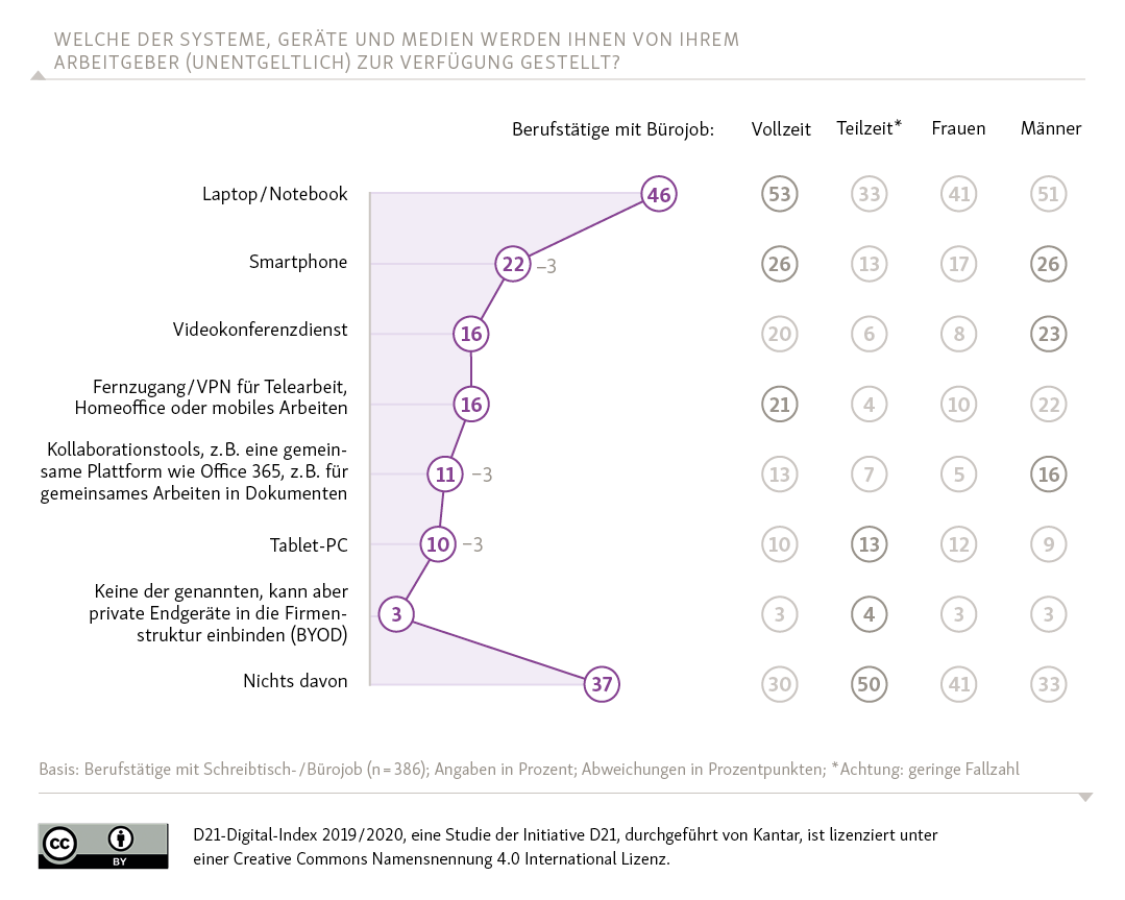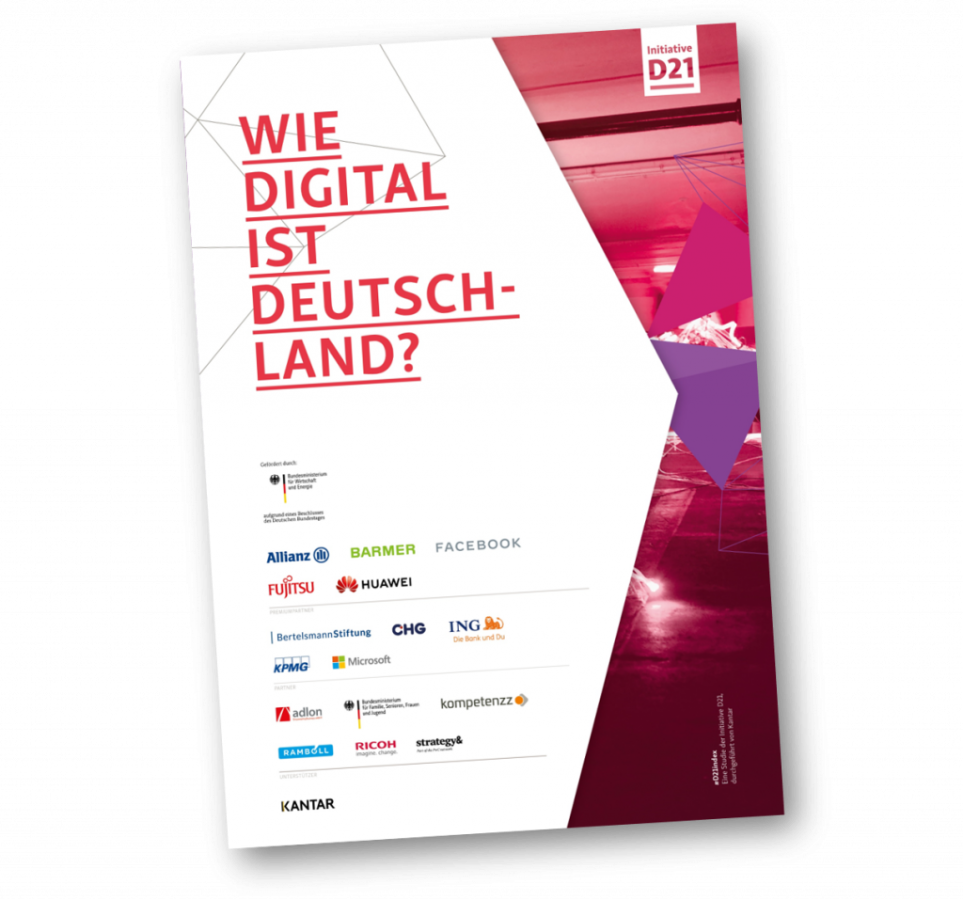Feb 26, 2020 | Weingarten
2019/2020 D21 Digital Index shows that the transition toward a digital work culture is stalling in Germany
• Companies are making little progress with the expansion of the digital workplace
• Employees are better equipped with mobile IT devices at home than they are at work
• CHG-MERIDIAN is again supporting the D21 study as a partner
According to the latest D21 study, which looks at the level of digitalization in the German population in 2019, life is becoming increasingly digitalized in Germany, but there are significant differences between personal and professional life when it comes to access to smartphones, laptops, etc. In the professional sphere, the digital workplace promises more freedom and flexibility, and greater efficiency and productivity. But this requires access to the latest technology, tailored to the user’s individual needs and integrated into dynamic organizational structures. Employees have ever-growing expectations of IT equipment and programs used at work, while their motivation drops the greater the discrepancy is between personal and professional use and equipment. This discrepancy increases if employees’ personal IT equipment is more cutting-edge than the devices they have access to at work.
“The digital workplace requires new skills and ways of thinking from all parties. In addition to the technological enablement of their employees, companies particularly need to integrate a digital work culture. With the right digitalization strategy, companies can gain a competitive edge in the battle for talent while benefiting from higher employee motivation and efficiency,” says David von Thienen, Employer Benefit Solutions team leader at CHG-MERIDIAN AG.
Mobile devices are now a regular feature of everyday life, be it reading the news on a tablet, sending photos from a cellphone, or streaming videos on a laptop. Smartphones are used more and more frequently, up 4 percent year-on-year according to the D21 study. Ranked by usage, they top the list with 79 percent, followed by laptops in second place with 65 percent. Accordingly, surfing the internet on the go is becoming more commonplace, increasing a sizeable 6 percent over the last year. The picture in Germany’s companies is quite different. They are increasingly lagging behind when it comes to providing their employees with IT equipment. Only 46 percent, i.e. less than half of employees who use IT in the workplace, are supplied with a laptop by their employer, and only 22 percent are given a smartphone, a drop of 3 percent on 2018.

The digital workplace plays an integral role in any digitalization strategy, but the transformation is stalling. Only 15 percent of all employees have access to mobile working, and even in office environments there is little sign of progress. In fact, more respondents than last year stated that their company does not offer any form of mobile working. This is not the fault of employees, as almost half of them are interested in using digital technology and agile forms of working. The problem is a lack of IT infrastructure.
“The challenge for companies is how to deliver the digital workplace strategically and efficiently. It requires a holistic approach that maps the technology lifecycle and takes into account areas such as procurement, equipment replacement, and, above all, the needs of employees. For example, to have a say in the selection process or pay for an equipment upgrade,” explains von Thienen. Cutting-edge equipment, and with it greater digitalization, also makes companies more attractive employers. This is an important factor when trying to attract skilled labor.
Digitalization brings benefits. As the D21 study reveals, 44 percent of respondents think that flexible working, in terms of time and location, would improve their quality of life. And 78 percent of them believe that their current expertise is sufficient for their workplace. At the same time, they are aware that professional success relies on lifelong learning, which the majority view as a privilege. The digital workplace allows companies to benefit from their employees’ existing digital expertise and helps their workforce to acquire additional skills.
The D21 Initiative is Germany’s largest nonprofit network for digital society, consisting of representatives from trade and industry, politics, academia, and civil society organizations. CHG-MERIDIAN is again a partner of the D21 digital index study.
Your Contact
Please contact us for further questions!
Jessica Behrens
Company Spokesperson
- CHG-MERIDIAN AG
- Franz-Beer-Straße 111
- 88250 Weingarten
- +49 751 503-203
- +49 175 3419179
- jessica.behrens@chg-meridian.com

